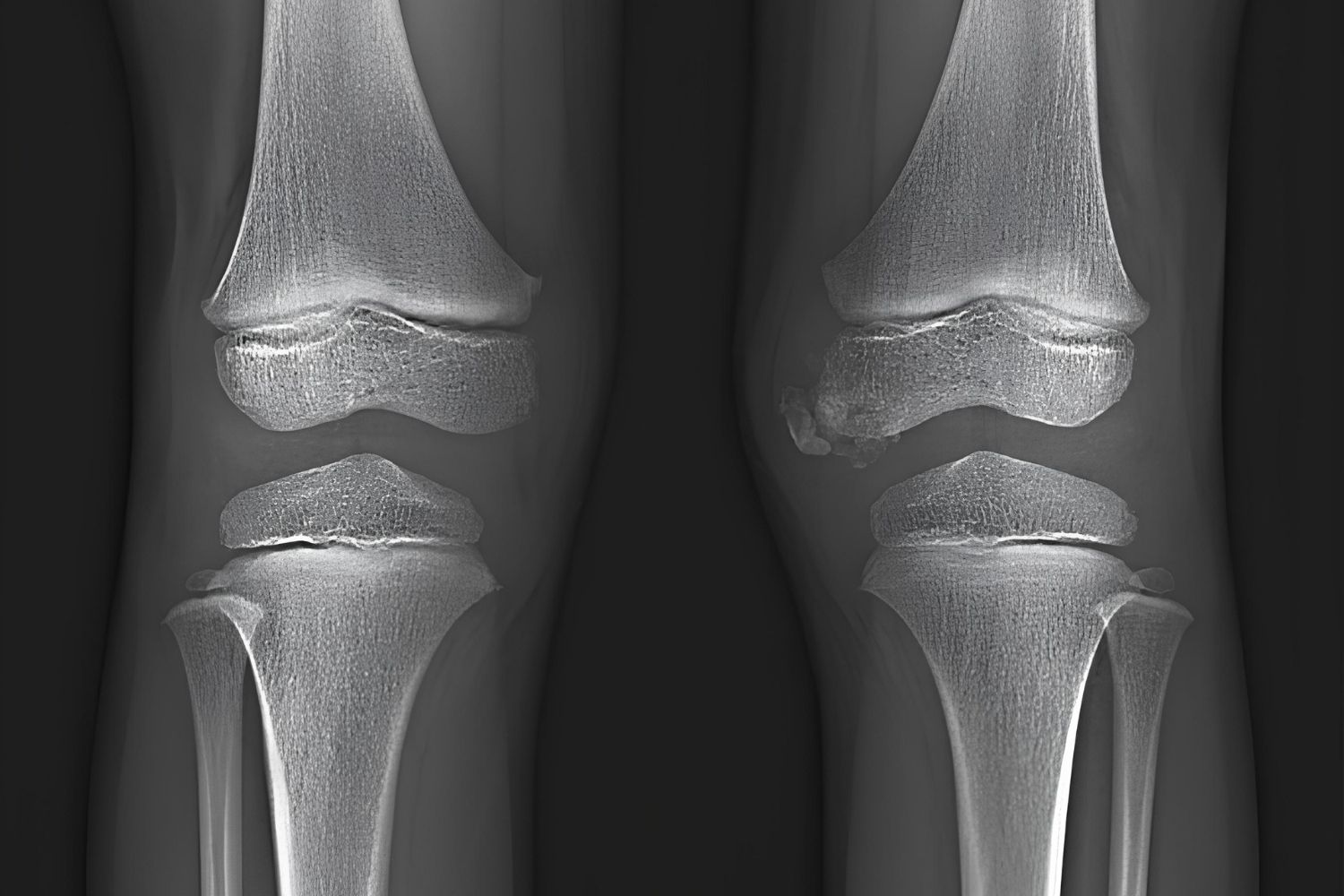
Patella Hypoplasia Mental Retardation is a rare genetic disorder that affects the development of the kneecaps (patellae) and can lead to intellectual disabilities. This condition, also known as Small Patella Syndrome, can cause a range of physical and cognitive challenges. Symptoms often include underdeveloped or absent kneecaps, joint problems, and varying degrees of intellectual impairment. Genetic mutations are the primary cause, typically inherited in an autosomal dominant pattern. Diagnosis usually involves genetic testing and clinical evaluation. Treatment focuses on managing symptoms and improving quality of life through physical therapy, educational support, and sometimes surgical interventions. Understanding this condition can help families and healthcare providers offer better care and support.
Key Takeaways:
- Patella Hypoplasia Mental Retardation (PHMR) is a rare genetic disorder affecting the knees and brain, leading to underdeveloped kneecaps and cognitive challenges.
- Early diagnosis and a supportive environment are crucial for managing PHMR, with treatments like therapy, special education, and family support playing a key role in improving quality of life.
Understanding Patella Hypoplasia Mental Retardation
Patella Hypoplasia Mental Retardation (PHMR) is a rare genetic disorder. It affects multiple parts of the body, including the knees and brain. Here are some intriguing facts about this condition.
-
PHMR is Genetic: This disorder is inherited in an autosomal recessive manner. Both parents must carry the gene for a child to be affected.
-
Rare Condition: PHMR is extremely rare, with only a few cases documented worldwide.
-
Patella Hypoplasia: Individuals with PHMR often have underdeveloped or absent kneecaps, known as patella hypoplasia.
-
Mental Retardation: Cognitive impairment is a significant feature, affecting learning and development.
-
Growth Delays: Children with PHMR may experience delayed growth and physical development.
-
Motor Skills: Fine and gross motor skills are often impaired due to the underdeveloped kneecaps and cognitive challenges.
Symptoms and Diagnosis
Recognizing the symptoms early can help in managing PHMR. Diagnosis usually involves genetic testing and clinical evaluations.
-
Delayed Milestones: Children may take longer to reach developmental milestones like walking and talking.
-
Joint Issues: Joint pain and stiffness are common due to the abnormal development of the kneecaps.
-
Facial Features: Some individuals may have distinct facial features, such as a broad forehead and a flat nasal bridge.
-
Behavioral Issues: Behavioral problems, including hyperactivity and attention deficits, are often observed.
-
Seizures: Some individuals with PHMR may experience seizures.
-
Speech Delays: Speech and language development can be significantly delayed.
Treatment and Management
While there is no cure for PHMR, various treatments can help manage symptoms and improve quality of life.
-
Physical Therapy: Regular physical therapy can help improve mobility and strengthen muscles.
-
Occupational Therapy: Occupational therapy can assist with daily activities and improve fine motor skills.
-
Speech Therapy: Speech therapy is crucial for addressing communication challenges.
-
Special Education: Tailored educational programs can help meet the learning needs of children with PHMR.
-
Medication: Medications may be prescribed to manage seizures and behavioral issues.
-
Surgery: In some cases, surgery may be necessary to address severe joint problems.
Living with PHMR
Living with PHMR requires ongoing support and care from family, healthcare providers, and educators.
-
Support Groups: Joining support groups can provide emotional support and practical advice for families.
-
Regular Monitoring: Regular medical check-ups are essential to monitor growth and development.
-
Adaptive Equipment: Using adaptive equipment can help individuals with mobility challenges.
-
Nutritional Support: Proper nutrition is important for overall health and development.
-
Mental Health: Addressing mental health is crucial, as individuals with PHMR may experience anxiety and depression.
-
Family Education: Educating family members about PHMR can help them provide better support.
-
Community Resources: Utilizing community resources can offer additional support and services.
Final Thoughts on Patella Hypoplasia Mental Retardation
Patella Hypoplasia Mental Retardation, a rare genetic disorder, affects both physical and cognitive development. Understanding its symptoms, causes, and treatments can help those affected lead better lives. Early diagnosis and intervention are crucial for managing the condition effectively. Support from healthcare professionals, educators, and family members plays a vital role in improving the quality of life for individuals with this disorder.
Raising awareness about Patella Hypoplasia Mental Retardation can lead to better resources and support systems. Research continues to uncover more about this condition, offering hope for future advancements in treatment and care. By staying informed and advocating for those affected, we can make a difference in their lives. Remember, knowledge is power, and with it, we can create a more inclusive and supportive environment for everyone.
Frequently Asked Questions
Was this page helpful?
Our commitment to delivering trustworthy and engaging content is at the heart of what we do. Each fact on our site is contributed by real users like you, bringing a wealth of diverse insights and information. To ensure the highest standards of accuracy and reliability, our dedicated editors meticulously review each submission. This process guarantees that the facts we share are not only fascinating but also credible. Trust in our commitment to quality and authenticity as you explore and learn with us.
